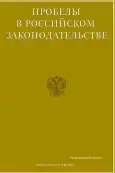К вопросу научного обеспечения дисциплины «Физическая подготовка» в образовательных организациях МВД России
- Авторы: Князев К.О.1
-
Учреждения:
- Краснодарский университет МВД России
- Выпуск: Том 16, № 4 (2023)
- Страницы: 125-129
- Раздел: Актуальные проблемы подготовки и повышения квалификации сотрудников органов внутренних дел в современных условиях
- URL: https://bakhtiniada.ru/2072-3164/article/view/250368
- EDN: https://elibrary.ru/LLWWZQ
- ID: 250368
Цитировать
Аннотация
В данной статье изучены вопросы значимости физической подготовки для сотрудников полиций, являющихся слушателями программ переподготовки и повышения квалификации образовательных организаций МВД России с точки зрения научного обеспечения. Физическая подготовка помогает полицейским сохранять свое здоровье и физическое состояние в хорошей форме. Они испытывают меньшие травмы и утомление, легче переносят длительные периоды напряжения и стресса, что также важно для их эффективной работы.
В образовательных организациях МВД России физическая подготовка является одной из ключевых дисциплин, без которой прохождение службы в полиции невозможно. Полицейский должен выдерживать большие физические нагрузки, быть быстрым, ловким и выносливым. Именно поэтому тренировки и занятия спортом являются неотъемлемой частью профессиональной подготовки каждого сотрудника полиции. Кроме того, занятия спортом и тренировки позволяют не только физически укрепить организм, но и развивать такие важные качества, как дисциплина, упорство и самоконтроль. В своей работе полицейские сталкиваются с опасными ситуациями, которые требуют быстрого и адекватного реагирования.
Что касается использования последних достижений науки при подготовке слушателей образовательных организаций МВД России, отметим, что они могут способствовать повышению их эффективности и безопасности, а также уменьшению риска получения травм. Современные методики позволяют отслеживать и анализировать биохимические процессы в теле человека в процессе тренировки, что способствует более точному регулированию интенсивности упражнений и подбору подходящих к интенсивности объемов нагрузки для каждого полицейского индивидуально.
Таким образом, в рассматриваемом контексте физическую подготовку в образовательных организациях МВД России можно обозначить как совокупность специальных занятий, направленных на развитие физических качеств слушателей, позволяющих им достигать высоких спортивных результатов.
Полный текст
Открыть статью на сайте журналаОб авторах
Кантемир Олегович Князев
Краснодарский университет МВД России
Автор, ответственный за переписку.
Email: kodzokov.aznaur@bk.ru
старший лейтенант полиции, преподаватель кафедры физической подготовки, Северо-Кавказский институт повышения квалификации (филиал)
Россия, Нальчик, КБРСписок литературы
- Авдеева И.К., Беляева Е.С., Сергеева А.Г. Методологические основы спортивной подготовки // Студенческий вестник. 2022. № 13-2 (205). С. 52-55.
- Баркалов С. Н. Актуальные аспекты совершенствования физической подготовки в образовательных организациях МВД России в свете формирования готовности к обеспечению личной безопасности сотрудников полиции // Автономия личности. 2020. № 2 (22). С. 19-23.
- Галкин В.А. Оптимизация процессов воспитания и образования в сфере профессионально-прикладной физической подготовки учащихся в высших учебных заведениях // Образование и воспитание. 2018. № 5(20). С. 64-67.
- Канукоев А.М. Совершенствование общей физической подготовки слушателей программ профессионального обучения в образовательных организациях МВД России // Педагогический журнал. 2018. Т. 8. № 3A. С. 74-80.
- Кузнецов М.Б. К вопросу о проблемах и путях совершенствования физической подготовки в образовательных организациях МВД России // Наука-2020. 2021. № 1 (46). С. 100-104.
- Мешев И.Х., Дружинин А.В. Роль физической подготовки в становлении профессионализма сотрудников ОВД // В книге: Физическое воспитание и спорт: актуальные вопросы теории и практики. Сборник статей Всероссийской научно-практической конференции. Отв. редакторы А.Т. Биналиев, А.А. Тащиян, В.М. Баршай. Ростов-на-Дону, 2022. С. 382-386.
- Романова Е.Ю., Алдошин А.В. Дисциплина «Физическая подготовка» в образовательных организациях МВД России // Наука-2020. 2021. № 3 (48). С. 122-127.
- Славко А.Л., Кукало Е.В., Руссиян А.О. Оптимизация процесса физической подготовки сотрудников органов внутренних дел // В сборнике: Совершенствование профессиональной и физической подготовки курсантов, слушателей образовательных организаций и сотрудников силовых ведомств. Сборник статей XXIII Всероссийской научно-практической конференции. Отв. редактор С.М. Струганов. Иркутск, 2021. С. 97-101.
- Сухорада Г.И., Тверитнев В.И., Филин В.Г. Оптимизация содержания физической подготовки личного состава // Актуальные научные исследования в современном мире. 2018. № 7-2 (39). С. 37-41.
- Хажироков В.А. Оптимизация физической подготовки сотрудников органов внутренних дел РФ // Культура физическая и здоровье. 2020. № 2 (74). С. 72-73.
Дополнительные файлы








